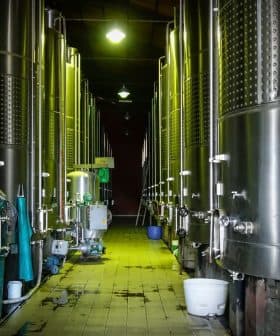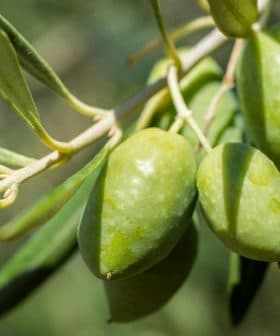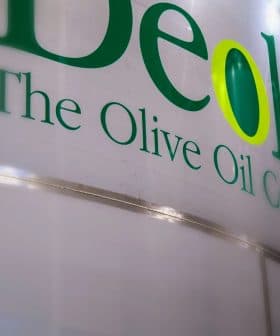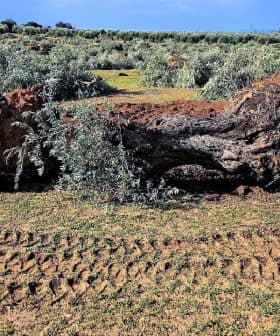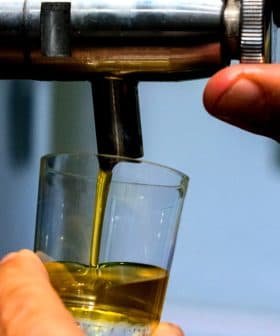Four-Year Project to Establish Foundation for Galician Olive Oil Sector
By 2021 Galicia expects to complete a four-year R&D project that seeks to establish solid foundations for a Galician olive oil industry based on indigenous olive varieties.
 Galicia’s Biological Mission
Galicia’s Biological MissionBy 2021, the Viticulture Group of Galicia’s Biological Mission expects to complete a four-year R&D project aimed at establishing a Galician olive oil industry based on indigenous olive varieties, including Brava Gallega and Mansa Gallega. The project involves recovering indigenous olive trees, identifying Galician olive varieties, analyzing the qualities of their oils, and expanding production to identify varieties with the best business potential, with the goal of providing data to register new olive varieties as indigenous from Galicia and globally distinct.
By 2021 Galicia expects to complete a four-year R&D project that seeks to establish solid foundations for a Galician olive oil industry based on indigenous olive varieties.
“Characterization and Recovery of Indigenous Olive Varieties from Galicia” is the first major scientific project devoted to Galician olives and began in 2017 with the aims of recovering indigenous olive trees, identifying Galician olive varieties, undertaking a small-scale production of their olive oils to analyze their qualities, and expanding their production to identify those varieties with best business potential.
The Viticulture Group of Galicia’s Biological Mission, a center of the Spanish National Research Council, leads this research sponsored by Juana de Vega Foundation and supported by APAG, Galicia’s Association of Olive and Oil Producers.
The Group is responsible for activities in scientific and technological aspects of viticulture and, since 2012, Galician oliviculture.
Its initial investigations confirmed the existence of two indigenous olive varieties, Brava Gallega and Mansa Gallega, which in 2017 were recognized and incorporated into Spain’s Registry of Olive Varieties with a Commercial Interest and, consequently, the EU Plant Variety Catalogues and Database. This enabled their planting, olive and oil production, and indication on product labels.
“We described their DNA profiles and features according to the existing UPOV code for Olea europea and have some data about their organoleptic traits and the analysis of their oils but need long-term assessments of the olive trees and the influence of annual weather to make rigorous and reliable conclusions about the peculiarities of each olive variety,” said María del Carmen Martínez, the group’s chief.
In 2018 the Mission reported the findings of the project’s first phase when 116 centenary olive trees were identified and marked. Thirteen different and unknown olive varieties were found after analyzing DNA and botanical descriptions of 70 of these trees.
Except for Brava and Mansa Gallega and Portuguese Cobrancoça, the remaining varieties need to be named. The plan now moves forward to stages that seek to expand and complete the recovery of indigenous olive tree varieties, and the characterization of oils produced from their olives.
Upon completing the project, the Viticulture Group expects to provide the Galician and Spanish governments with data required to register new olive varieties as indigenous from Galicia and globally distinct. It then plans to offer producers and nurseries material that may help expand the olive oil and table olive industries using indigenous Galician olive varieties.
The Group’s prior experience with the initial stages of a Galician wine industry based on local grape varieties, and the many similarities between olives and vines, serve as a reference for the development of what appears to be a promissory regional olive oil industry.
Although Galicia is known for its wine production, centenary olive trees located throughout Ribeira Sacra, Valdeorras and the province of Pontevedra attest an ancient olive oil production. Many trees were removed centuries ago and commercial oil production was abandoned, but domestic production never ceased. In recent years some companies and wineries resumed this production with a commercial target.
Approximately 300 hectares of olive trees are currently planted in Galicia, 130 of which, or 40 percent, belong to APAG members. “The Association is ready to provide advice to the increasing number of persons interested in planting olive trees, especially from indigenous varieties,” noted APAG’s president, José Antonio García Martínez. Many companies, especially foreign, are interested in investing in Galicia’s olive sector, he noted.
Among the current operators in Galicia, four employ indigenous olive varieties grown in Galicia; five producers make oils from non-indigenous olives grown in Galicia.
According to García, APAG producers are focusing on crafting premium olive oils, paying the utmost attention to all stages involved in production to ensure the gourmet status of their product.
APAG perceives the Biological Mission’s research can have a positive impact on the expansion of Galicia’s olive sector and the recognition of the uniqueness of its indigenous olive oils. The Association’s aspiration is that these efforts may help constitute a designation of origin that would certify the quality and origin of the olive oils from Galicia.


